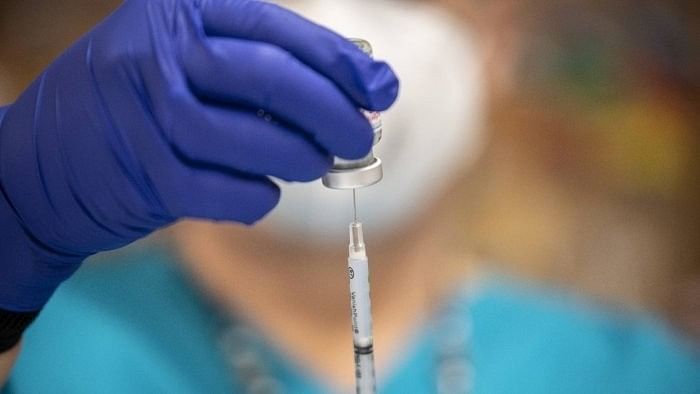
Representative image of vaccine.
Credit: Reuters Photo
New Delhi: Indian public health campaigners on Wednesday said they will oppose the patent applications of a promising new but highly expensive anti-HIV medicine by a pharma major on the ground that the basic salt is previously known and can not be patented as per the Indian law.
The patent, once granted to Gilead Sciences, would stop Indian generic medicine manufacturers from making cheap copies of the drug – costing $ 44,000 (nearly Rs 37 lakh) per patient per year – till 2038, they argued.
The drug in question is Lenacapavir – administered twice a year as an injection – that has shown promise to offer a 100 per cent cure to HIV/AIDS. It has generated global attention after multiple clinical trials have demonstrated its superior efficacy.
Sankalp Rehabilitation Trust, a civil society organisation working with HIV positive people said it would counter the company’s claims before the Indian Patent Office on Thursday, noting that the drug consists of a previously known compound, and should not be considered an invention according to India's Patent Act.
“Granting these patents, which would last until August 2038, could hinder access to affordable generic versions of Lenacapavir. Affordable generic HIV medicines have been crucial in keeping people alive globally, including in India," said Eldred Tellis, director of the trust.
Leena Menghaney, an activist from MSF Access Campaign said with generic competition, the medicine’s costs could be brought down to initially $100 per person per year, with further reductions to $40 per year as demand increases.
A few months back, the manufacturer had announced that it would make the medicine affordable to people in the developing countries.
“Gilead can resort to the voluntary licensing model that it adopted in India for its patented medicine against Hepatitis-C infection. As a consequence, the treatment is now available in India for about $ 300 as against the initial price of $ 84,000 for the US market,” Ishwar Gilada, a Mumbai based infectious disease specialist and president emeritus of the AIDS Society of India told DH.
Lenacapavir is currently available as a pre-exposure prophylaxis drug that can prevent the spread of infection in people not yet exposed to the disease-causing agent. It showed 100 per cent and "no safety concerns" in women, according to a study published in The New England Journal of Medicine in July.
